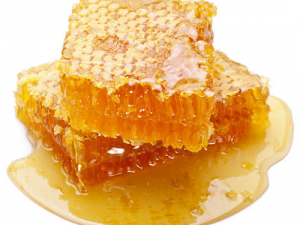Naki unveils the world’s most expensive manuka honey
Naki Honey, a New Zealand manuka apiary company, has crafted what is believed to be the world's most expensive honey.
 Export revenue for New Zealand pure honey reached a record $315 million for the year ended 2016, up 35% on the previous year.
Export revenue for New Zealand pure honey reached a record $315 million for the year ended 2016, up 35% on the previous year.
Export revenue for New Zealand pure honey reached a record $315 million for the year ended 2016, up 35% on the previous year.
This increase reflects value per kg rather than increased volume.
“New Zealand’s apiculture industry has grown rapidly over the last few years with strong market demand for premium New Zealand honey, especially mānuka honey, driving a lot of the current expansion,” says Karin Kos, chief executive of Apiculture New Zealand, the peak industry body for New Zealand honey and beekeeping industry.
“Here at home and abroad, consumers love New Zealand honey which is in high demand around the world,” says Kos.
The report showed that while export prices rose for New Zealand honey during 2015/16, world honey prices fell.
In the same year, New Zealand produced a record honey crop of 19,885 tonnes. Registered hive numbers reached 684,046 in June 2016, while registered beekeeping enterprises increased by 21% to 6735, the highest annual increase in recent years.
Kos says that the industry has continued to see growth in registered hive numbers over the 2016/17 season but that the current season was a lot more challenging, with poor weather conditions affecting this year’s honey crop.
“It’s been a very tough season for our industry this year but the long-term outlook for New Zealand apiculture remains strong.”
Kos acknowledged the concerns outlined in the MPI report over ongoing bee health, competition for apiary sites and maintaining the confidence of overseas consumers in the integrity of mānuka honey.
“As with any industry experiencing significant growth, we are experiencing some growing pains but we have a lot to look forward to, and we are committed to ensuring our growth is managed sustainably, and our honey bee colonies remain healthy,” says Kos.
Agriculture and Forestry Minister Todd McClay is encouraging farmers and growers to stay up to date with weather warnings and seek support should they need it.
The closure of SH2 Waioweka Gorge could result in significant delays and additional costs for freight customers around the Upper North Island, says Transporting New Zealand.
OPINION: The year has started positively for New Zealand dairy farmers and things are likely to get better.
Ministry for Primary Industries (MPI) Director General Ray Smith believes there is potential for an increase in dairy farming in New Zealand.
New Zealand's new Special Agricultural Trade Envoy, Horowhenua dairy farmer, company director and former Minister of Agriculture, Nathan Guy says the Free Trade Agreement (FTA) with India is a good deal for the country.
New figures show dairy farmers are not only holding on to their international workforce, but are also supporting those staff to step into higher-skilled roles on farm.